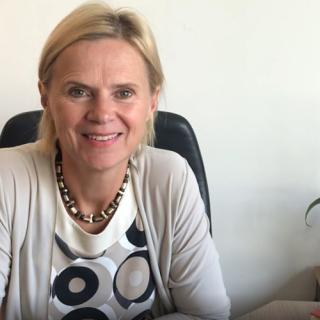Happy birthday Eurydice and Youth Wiki!

Celebrating 40 and 5 years of Europe’s education and youth networks
This year Eurydice, the network which provides information on European education systems and policies, celebrates 40 years. What has it achieved? And what about the other important anniversary for young people, that of the Youth Wiki? We asked Sophie Beernaerts, head of the Erasmus+, EU Solidarity Corps department at the Education, Audiovisual and Culture Executive Agency (EACEA).
- What is Eurydice?
As well as being the wife that Orpheus tried to bring back from the dead in Greek mythology, it’s a European network of national education systems that is a key source of information for policy making. The network is run in the EACEA, and covers all 38 Erasmus+ countries, where our National Units are established. We publish comparative thematic reports on key topics in early childhood education and care, primary, secondary, higher education and adult education – all available free of charge to users. We also provide a wealth of information on each national education system - a kind of education Wikipedia – on the Eurydice website.
- What have been its major achievements over the last 40 years?
To answer that, it’s important to understand Eurydice’s role in European education cooperation. Eurydice provides information and comparative analysis. It’s then up to others - politicians, civil servants, researchers and colleagues in the Commission - to consider the information, discuss and draw their conclusions, and take account of it in policy-making.
Without the information that Eurydice provides, European policy-making would not be evidence-based. Thanks to the network, we can see what countries do in relation to different issues – for example, whether early childhood education is provided to all children, how much teachers are paid, how schools integrate migrants and support equity, whether higher education students pay fees etc. And the analysis that we provide, combined with other data such as Eurostat statistics, helps to provide a better idea of the impact of different policy approaches.
It is a real achievement that this work covers such a broad range of topics and the network has grown from 9 countries in 1980 to 38 countries today.
- It’s also the 5th anniversary of the ‘Youth Wiki’… Can you tell us a bit more about it?
Yes. This was also a natural development - to consider the success of the Eurydice network and build a similar network in the youth policy area.
The Youth Wiki was born in 2015 and was a real novelty. It is the first online database presenting comprehensive information on all national policies targeting young people. Like Eurydice, it is based on a network of contributors from national authorities responsible for youth policies.
With the Youth Wiki, we now have the possibility to understand which priorities are identified by European countries in youth policy, to recognize trends in how youth policy is progressing across Europe, and to monitor the implementation of EU commitments. Just to give an example, the information provided by the Youth Wiki was extremely useful in designing the EU Solidarity Corps.
The Youth Wiki has also brought youth issues and related policy responses into the limelight. Many national public administrations tell us that the Wiki has boosted the visibility of national initiatives and the recognition of youth policy as a topical field of governmental action
- What’s next for Eurydice and the Youth Wiki?
We have reached a point where there is very exciting potential for improving our education systems by strengthening connections between Member States. This is underlined by our goal of creating a European Education Area by 2025, and deepening connections between education, research and innovation, within our overall vision of green and sustainable development. If we are to do this together, we need to continue to improve information and understanding across national borders. So investing in a network like Eurydice will bring enormous benefits in terms of our ability to achieve these policy goals.
The Youth Wiki is also developing in an ever-expanding policy area. New priorities emerge which must be translated into European and national actions. Our work is designed in close cooperation with DG EAC so that we provide relevant, factual evidence for policy-making by adding new topics according to upcoming priorities.
Think of the current challenge on improving digitalization particularly in response to the Covid-19 crisis: the Youth Wiki was able to provide instant information last June on how countries are supporting the use of digital technologies in youth services, so we could see where the gaps were. We are also about to publish an interactive map on national measures supporting digital youth work.
The Eurydice and Youth Wiki networks are not only a model for cooperation in Europe, but can inspire other world regions to cooperate better. The horizons of the Erasmus+ programme expand well beyond Europe, and so we are well placed to support that kind of development. I believe both of these networks have demonstrated their usefulness and have a bright future as a stepping-stone on the road towards a European Education Area by 2025.
This interview was originally published on Commission En Direct, European Commission’s intranet.




